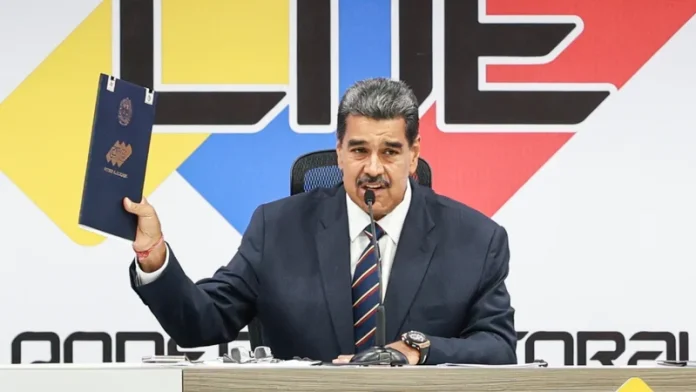The EU has threatened Venezuela re-elected President Nicolas Maduro with consequences if he does not ensure the transfer of power to opposition leader Edmundo Gonzalez Urrutia, who the US deemed the winner of the election, taking the protocol of some foreign observers as its basis.
The latest rejection came after Venezuela’s opposition backed calls by parties to publish the results of last week’s disputed presidential vote, with the Pope saying Venezuelans should “seek the truth” and warning against further violence.
The results published by Venezuela’s National Electoral Council on August 2 “cannot be recognised”, the EU Council said in a statement. It also added:
Any attempt to delay the full publication of the official voting records will only cast further doubt on their credibility.
The country’s electoral body says incumbent President Maduro won the July 28 vote, contradicting pre-election polls and sparking protests that have left 11 people dead and thousands arrested, according to human rights groups.
A growing number of countries, including the US and Argentina, say opposition candidate Edmundo Gonzalez Urrutia won the election. EU countries France, Germany, Italy, Italy and Spain are among those who have demanded transparency, calling on authorities to publish details of the vote.
Opposition leader Maria Corina Machado, who spent much of the week in hiding after Maduro threatened her with arrest following the protests, hailed these countries’ “commitment to democracy” over the weekend.
She backed the candidacy of Gonzalez Urrutia after she herself was barred from running. She wrote on X:
On behalf of Venezuelans, I thank you for this important message… reaffirming your commitment to democracy.
But unlike the US and several other countries, the EU has refrained from recognising Gonzalez Urrutia as president-elect.
On Friday, the National Electoral Council (CNE) confirmed Maduro’s victory with 52 per cent of the vote to Gonzalez Urrutia’s 43 per cent.
Meanwhile, Pope Francis, saying Venezuela was going through a “critical situation,” made “a sincere appeal to all parties to seek the truth and exercise restraint to avoid any kind of violence.”
